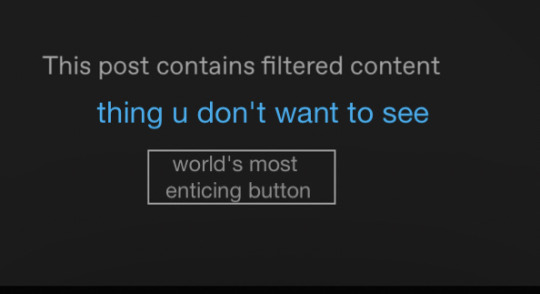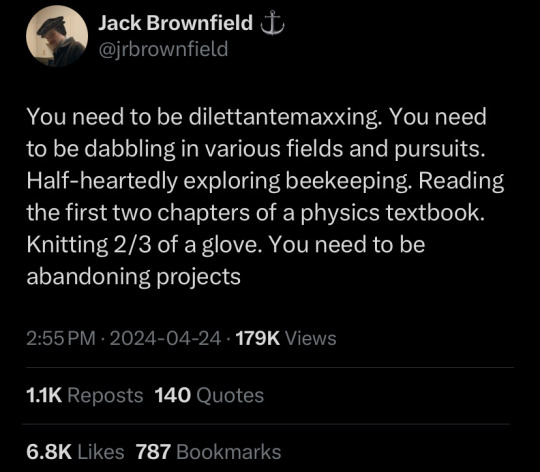Text
i recently stopped working in abortion care (i want to write about that decision, but not right now) but i was going through my old drafts and i wanted to expand on this:
something i’ve been thinking about a lot, especially in relation to my job, is the relationship between women’s quality of life, feminist consciousness raising, practical feminist action, and the language used to describe male violence (and the culture of, etc) that can sometimes revictimize and alienate women who have experienced it. by this i mean: when i have a patient who discloses to me that her unwanted pregnancy is the result of her partner slipping off the condom, does it actually improve her quality of life or increase her safety if i insist that we call her experience rape by deception or assault? would she perhaps be better served if i choose to mirror the language she uses to describe it, even if i disagree with how she wants to name that experience?
in my experience working with women who are often subjected to what i might term “casual” sexual violence (things that are often perceived as innocuous or common by many women, like condom tampering or emotional manipulation to receive sex), many of those women feel resistant or even defensive when other people call those experiences rape, or assault, or even harm.
in my experience, many women will acknowledge how their experiences affect them personally (how it made them feel, what it cost them, how it has made them view their partner) but they will not politicize their experience by naming it as and contextualizing it within a culture of male violence. this is perhaps not a feminist approach. however, in my experience, most women will do whatever they can— including creating linguistic loopholes through which they can obfuscate the reality of male violence in their lives— to survive their experiences in the moment. women will sometimes lie to themselves and others in order to keep living. while it is perhaps not the most sustainable survival tactic, i think that feminists should be cautious of dismissing this approach as strictly anti-feminist and solely patriarchy-serving. women have an incredible talent for prioritizing their own survival through the trauma at hand (the traumas that often follow as consequences of male violence: having an abortion, needing housing assistance, filing for divorce, seeking mutual aid, navigating healthcare as an abused woman). just because that ability to survive and cope sometimes comes at the cost of the recognition of the role that patriarchy (and its iterations, such as male violence) plays in their circumstances does not entirely negate the net benefit to women’s lives of being able to continue functioning in day-to-day life, being able to make clear-headed decisions about the impacts that materially affect them in the aftermath of patriarchy (can i actually stay pregnant? do i want to?), and, in some cases, moving through life without the psychological experience of having been victimized.
i think that as feminists, especially when we work directly with women impacted by patriarchy in real and painful ways, in the aftermath of that impact, there is an impulse to lead the horse to water and make it drink. there is an impulse to make the woman acknowledge that this isn’t her fault by pushing her to name male violence. there is an impulse to lead by example, to name it for her. i have certainly felt this impulse in abortion care. when a woman begins to cry, explaining that her partner knows she cannot get pregnant because of a life-threatening medical condition yet refused to wear a condom because it doesn’t “feel as good” for him, my own anger at her situation spurs that impulse. yet my experience has shown me part of effectively aiding women in crisis is prioritizing her own feelings, emotions and outlook over my own. that is, in my opinion, a radically feminist act, and one that is perhaps the most effective when consciousness-raising.
when i told women like that, “That’s horrible! He assaulted you and put your life in danger!” I was, effectively, ending the conversation. I was closing dialogue by imposing my interpretation of her circumstances over her. now the woman may regret sharing her story with me, she may feel pressured to hide her situation in the future, she may feel pressured to defend her partner, or she may begin to recognize her own cognitive dissonance about her situation at a time when she is not mentally prepared to face it. my prioritization of my own beliefs about her experiences may, ultimately, make the experience of having her abortion a lifelong trauma because i have forced her to reckon with her experience of male sexual violence, my own judgement of her relationship at a time when she chose to be vulnerable, and the experience of having the abortion all at the same time.
by contrast, when i began telling women like that, “I’m really interested in how that’s impacted you. How do you feel at home with him? Have you been considering birth control because of this? How are you feeling about the decision you’re faced with because of your partner’s actions?” I am opening the dialogue by demonstrating my interest in her thoughts and feelings about her experience. when i was careful to mirror the other woman’s language about her experience, i was often able to collaborate with the woman to find her helpful and harm-reductive solutions to improve her quality of life. sometimes, that meant getting her a birth control method that her partner couldn’t detect. sometimes, that meant sending her home with a supply of Plan B. sometimes, that meant connecting her with a social worker and creating a plan to safely exit her relationship. sometimes, it meant sending her to a prenatal specialist because she wanted the pregnancy regardless of the risk. this approach is very hard— it’s frustrating, it’s infuriating, it’s suffocating. it’s not satisfying or cathartic. it’s especially difficult to take this approach when working with very young women and girls, when working with those who are not health literate, when working with those who are religious or socially conservative.
but that is the real, on the ground, hands in the mud feminist work. it requires me to acknowledge that i do not know better. my deep knowledge of feminist literature and my own personal convictions about patriarchy and feminism do not mean that i can teach a woman anything about her own life. i have to acknowledge that i don’t know better even when i do literally, objectively know better. part of doing feminist work with the general female populace is acknowledging that while my feminist framework can shape the way i approach women’s issues, i will never connect to women, gain their trust, build a relationship, or meaningfully support them while telling them how they should think and act in their lives. this framework is mostly useful for those engaging in real-life work with women but i encourage those of use engaging with random women online to also use this framework. for anyone interested in learning more about this approach to feminist work, i would strongly recommend “Decision Assessment and Counseling in Abortion Care” by Alissa Perrucci.
#i think it’s less about ‘overwriting someone’s experiences’ than about appropriateness of context#Rape and Abuse are analytical categories and whether someone puts their experience in this or that conceptual bucket is#just irrelevant in the moment#we assume it’s relevant because the category comes packaged with certain assumptions and judgments#(if she names it as abuse then she’ll recognize it as wrong’—not necessarily!)#rape tw#abuse tw
574 notes
·
View notes
Text

we are not getting out of the plant blog allegations with this one
5K notes
·
View notes
Text
No in between. Reblog if you vote pleas
14K notes
·
View notes
Text
I am not usually in the habit of sharing fundraisers because generally the internet is not a place to trust that a fundraiser is legitimate. But for those of you who happen to know and trust me, I can tell you that this is verified, that I know the people involved, and that Maram needs our help.
111 notes
·
View notes
Text
"What surprised us the most was the fact that women who do muscle strengthening had a reduction in their cardiovascular mortality by 30%," Gulati says. "We don't have many things that reduce mortality in that way."
"The take home message is – let's start moving," says Eric Shiroma, a prevention-focused researcher at the National Heart, Lung, and Blood Institute, part of the National Institutes of Health, which provided grant support for the research.
Published March 11, 2024. Some good news for women’s health :)
168 notes
·
View notes
Text
When your partner has a praise kink but you're Montessori trained so you know that praise is an ineffective way to encourage development and it's much more productive to acknowledge their effort so that they learn to effectively give themselves feedback so they can develop a healthy intrinsic motivation instead of deriving their self worth from labels put on them by other people .... "baby it's amazing how much you could last today compared to last week"
5K notes
·
View notes
Text
So I started working again today, and me and my coworker had to squeeze lemons which usually is a really un fun job but TODAY. We had the mostly lovely batch of lemons to work with. So we rated how smoothly they cut and how nice the insides of them looked for about an hour. An absolutely marvelous time I gotta say
51K notes
·
View notes
Text

I don’t even like the love languages concept at all, much less the way it circulated among evangelical culture ~20 years ago, and many of the book’s examples are pretty sexist, but this just … literally isn’t true.
2 notes
·
View notes
Text
Tfw you discover that Mike Rose published a new book posthumously and you get to read one more book by the GOAT and rush over to the library on your lunch break to grab a copy. 🤓
0 notes
Text
Funny thing about Madeleine L’Engle. Her poetry is really bad.
0 notes
Text
Adult life is full of so many filters you need to change out. You’re probably forgetting to change out a filter right now.
3K notes
·
View notes
Text
absolutely no one:
Madeline L’Engle, writing a wrinkle in time at some point in the early 1960s: what are kids into these days? comparative religious studies and theoretical physics, right? Yeah?
12K notes
·
View notes
Text
enough about taylor swift already. reblog and tag the smallest, least known artist you listen to
23K notes
·
View notes
Text
Obviously major content warning for disordered eating
11 notes
·
View notes


